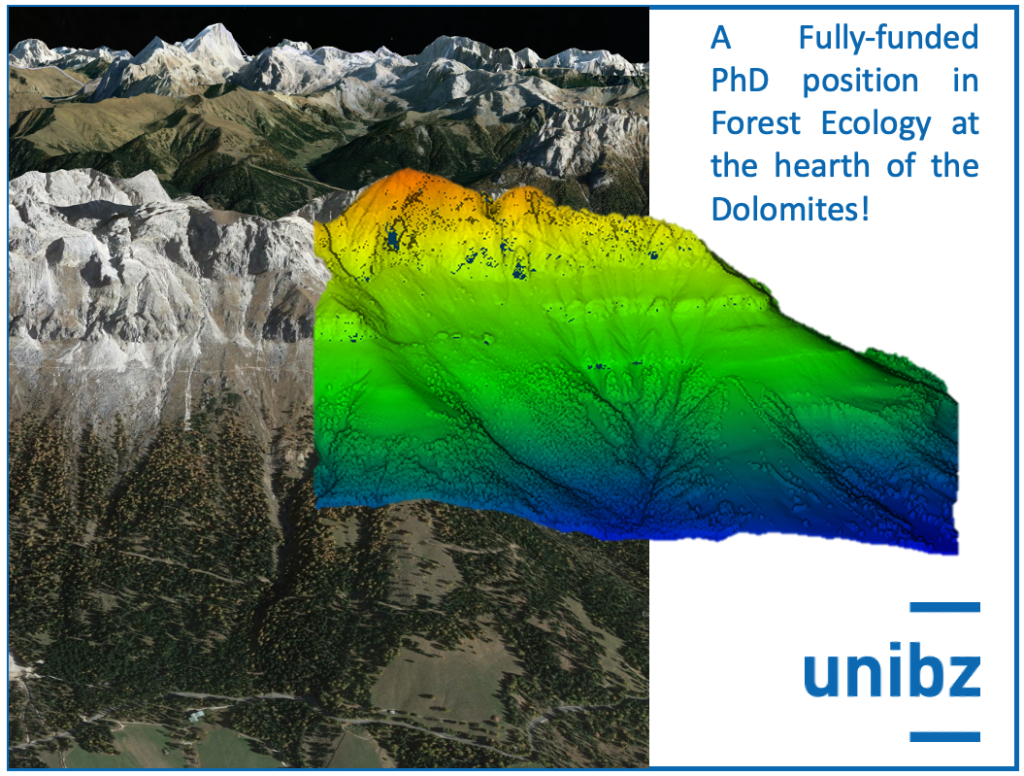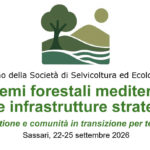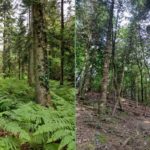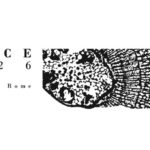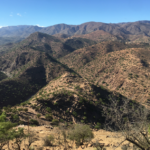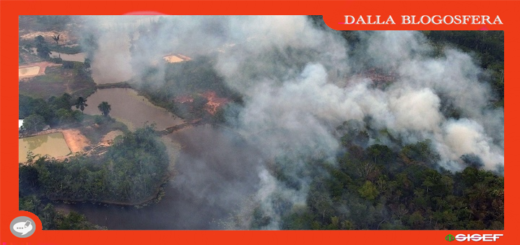PhD in Mountain Environment and Agriculture

Forests with a productive function are traditionally managed as large blocks with almost uniform treatments.
This approach simplifies management but often does not consider changes in forest dynamics over space and
time. However, emerging technologies such as the Internet of Things (IoT), e.g. TreeTalkers (Valentini et al.,
2019), and the increasing availability of data from hyperspectral remote sensing such as the recent PRISMA
mission (Cogliati et al., 2021; Vangi et al., 2021) and drone Lidar (Neuville et al., 2021) to space-borne Lidar
applications such as the GEDI mission (Guerra-Hernández and Pascual, 2021), allow the collection of
information at finer scales than in the past. For example, in the case of continuous and widespread IoT-based
monitoring of physiological processes at the tree level, the collected data and their real-time analysis can serve
as an early warning system, providing evidence of changes in physiological processes translatable into loss
of productivity or even forest die-off (Salam, 2020). The application of such technology over long-term periods
can be used to identify thresholds where key processes have been altered beyond the forest resilience point
(tipping point). Similarly, hyperspectral and Lidar monitoring can provide information for spatial models of biotic
and abiotic disturbances (Yu et al., 2021) as well as supporting the characterisation of habitat suitability.
Examples of disturbances are drought effects, cold spells, bark beetle attacks, storms and fires. Monitoring
and mitigation of these disturbances are of paramount importance because they can influence widespread
mortality and determine habitat dynamics and thus possible biodiversity losses.
That’s the idea behind thee PhD position offered by the University of Bozen-Bolzano
More in details, the position offers the perfect combination of broad in-situ IoT-based monitoring networks for environmental and physiological parameters at tree scale with multi-sensor remote sensed observations of functional traits at canopy scale. By using data science approaches, the selected PhD candidate will design a project to suppor. the identification of guidelines for the adaptation of forestry management to climate change and for the. conservation of forest biodiversity.
Developments on such a complex topic are crucial and urgent to understand how to make our forests fit for the present and future challenges as well as to develop climate-smart forest policies for achieving the goals of the EU Green Deal, the Paris Agreement and the 2030 Agenda (SDGS UN 2017).
Deadline for applications: 5th November, H:12:00
More info for interested candidates: https://www.unibz.it/en/faculties/sciencetechnology/phd-mountain-environment-agriculture/
